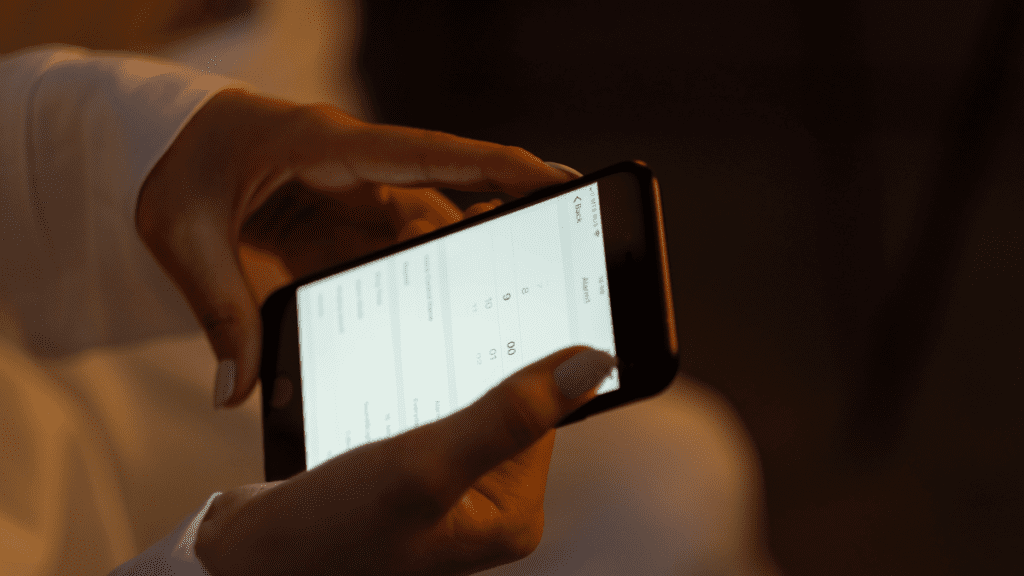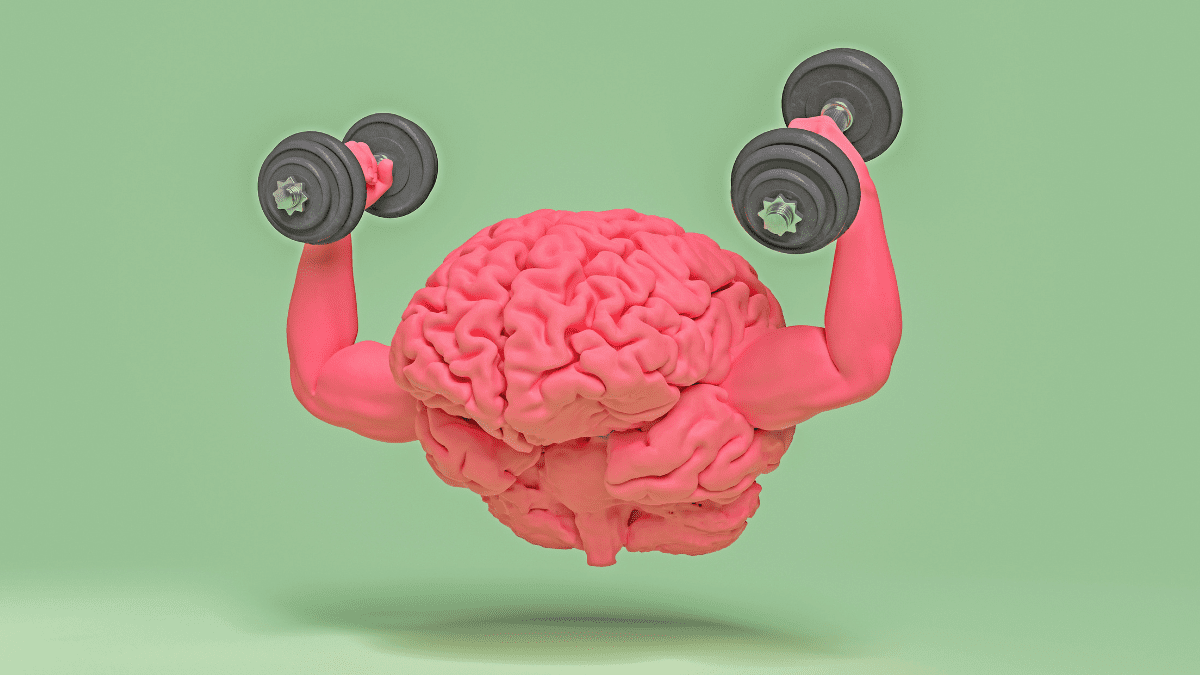Free Mindfulness Apps That Actually Change Your Life
Free mindfulness apps that actually change your life—no fluff, no cost. Start now to break stress cycles, reclaim peace, and build powerful daily rituals instantly.

Can Free Mindfulness Apps Really Change Your Life?
What Makes Mindfulness Apps So Powerful?
Life feels overwhelming sometimes. With constant pressure and endless distractions, staying calm isn’t easy. But what if peace was just a tap away? That’s where mindfulness apps come in.
These free digital tools are designed to reduce stress, improve focus, and help you reconnect with the present moment—without costing a thing. And yes, they actually work.
In this article, you’ll discover the most powerful free mindfulness apps that people are using to shift their mental state daily. Then, we’ll also show you how to get the most out of each one, uncover hidden features, and avoid common mistakes.
If you’re looking for a broader breakdown of how these tools support your overall wellness, check out our Ultimate Guide to Mindfulness Apps for Mental Well-Being.
Ready to break the cycle of stress and take back control of your mind? Let’s dive in.
Finding effective ways to manage mental well-being is crucial. Fortunately, free mindfulness apps offer accessible solutions. But how effective are these tools in promoting mental health?
Do Free Mindfulness Apps Really Enhance Mental Health?
Do Free Mindfulness Apps Really Enhance Mental Health?
Free mindfulness apps are becoming more popular every day. They promise to lower stress and sharpen focus. But do they really work?
The answer is yes—when used regularly. Many people say these apps help reduce anxiety. Others feel more calm and in control of their emotions.
These apps also make mindfulness easier to learn. Most include guided programs that walk you through each step. This is especially helpful if you’re just getting started.
Even better, many apps offer different styles of practice. That way, you can find what works best for you. Whether it’s breathing exercises, short meditations, or calming music, there’s something for everyone.
In short, free mindfulness apps can truly support your mental health. But like anything that works, you have to use them with intention.
What Features Make Mindfulness Apps Effective?
Not all mindfulness apps are created equal. Certain features contribute significantly to their effectiveness.
- Guided Meditations: Step-by-step sessions help users understand and practice mindfulness techniques.
- Progress Tracking: Monitoring improvements can motivate continued practice and highlight growth areas.
- Reminders and Notifications: Regular prompts encourage consistent practice, which is key to experiencing benefits.
- Community Support: Some apps offer forums or groups, fostering a sense of connection and shared experience among users.
These features collectively enhance user engagement and the overall effectiveness of the app.
Are There Limitations to Using Free Mindfulness Apps?
While free mindfulness apps can be helpful, they do have some limits. For example, some people may miss having personalized support. Without one-on-one guidance, it’s easy to feel unsure about what to try next.
Also, many of these apps offer a lot of content. In fact, the choices can feel overwhelming. It’s not always clear which session to start with—or what fits your current mood or goal.
Most importantly, these apps are tools for support, not a full solution. They can boost your mental well-being, but they aren’t meant to replace help from a licensed professional when you need it.
Still, when used wisely, they can make a big difference.
How Can You Maximize the Benefits of Mindfulness Apps?
To get the most out of mindfulness apps, consider the following tips:
- Set Specific Goals: Determine what you aim to achieve, such as stress reduction or improved focus.
- Establish a Routine: Consistency is crucial. Try to practice at the same time each day.
- Start Small: Begin with shorter sessions and gradually increase duration as you become more comfortable.
- Reflect on Your Practice: Take time to consider how each session affects your mood and stress levels.
Free mindfulness apps offer valuable tools for enhancing mental well-being. While they have certain limitations, their benefits can be substantial when used consistently and thoughtfully. By understanding their features and setting clear intentions, you can make these apps a meaningful part of your mental health toolkit.
Best Free Mindfulness Apps for Instant Calm
In today’s busy world, peace can feel out of reach. Stress builds. Distractions grow. But free mindfulness apps can help. These tools make calm more accessible—anytime, anywhere. In this section, you’ll discover the best apps available, what makes them stand out, and how they can improve your day-to-day mental health.
What Are Mindfulness Apps?
Mindfulness apps are digital tools that guide you toward being more present. They are designed to help you slow down, breathe, and reset. Typically, they include short meditations, calming breathwork, and mood or habit trackers. As a result, these features work together to make it easier to stay consistent. Over time, this helps you build a steady mindfulness habit—one small step at a time.
How Can Mindfulness Apps Benefit You?
When used regularly, mindfulness apps can bring real benefits to your mental health. For instance, many people report feeling less anxious and more grounded. Others say their focus improves throughout the day. In addition, emotional ups and downs often become easier to manage. Because most apps include guided sessions, they make the learning process smoother. So even if you’re just starting out, you can still build a practice that truly supports your well-being.
Which Free Mindfulness Apps Are Worth Trying?
Here are some top-rated free mindfulness apps:
- Insight Timer: Offers a vast library of free guided meditations and music tracks.
- Smiling Mind: Provides mindfulness programs tailored for different age groups, including children and adults.
- UCLA Mindful: Developed by the UCLA Mindful Awareness Research Center, this app offers basic meditations and wellness meditations for people living with challenging health conditions.
- Healthy Minds Program: Combines neuroscience and meditation to help users develop skills for a healthy mind.
These apps are available on both iOS and Android platforms, making them accessible to a wide audience.

How to Get the Most from Mindfulness Apps
Mindfulness apps offer a convenient way to incorporate meditation into daily life. However, simply downloading an app isn’t enough. To truly benefit, it’s essential to use these tools effectively.
What Are Your Meditation Goals?
Before starting, identify what you hope to achieve. Are you seeking stress reduction, better sleep, or improved focus? Clarifying your objectives helps in selecting the right app and tailoring your practice to meet your needs.
How Can You Establish a Consistent Routine?
Consistency is key in mindfulness practice. Set aside a specific time each day for meditation. Whether it’s morning or evening, a regular schedule reinforces the habit. Many mindfulness apps offer reminder features to help maintain this consistency.
Are You Starting with Manageable Sessions?
Begin with short meditation sessions, perhaps 3 to 5 minutes. As you become more comfortable, gradually increase the duration. This approach prevents overwhelm and fosters a sustainable practice.
Visit this guide for additional insights on effective meditation practices.
How Can You Utilize App Features to Enhance Practice?
Explore the various features your chosen mindfulness app offers. Many include guided meditations, breathing exercises, and progress tracking. Utilizing these tools can provide structure and motivation, enhancing your overall experience.
What Role Does Reflection Play in Your Mindfulness Journey?
After each session, take a moment to reflect on your experience. Noting any changes in mood or stress levels can provide insight into your progress. Some apps offer journaling features, allowing you to document these reflections over time.
By setting clear goals, establishing a routine, starting with manageable sessions, utilizing app features, and reflecting on your practice, you can maximize the benefits of mindfulness apps. Remember, the journey is personal, and progress may be gradual. Patience and persistence are essential.
Beyond Meditation—What Else Do Free Mindfulness Apps Offer?
Mindfulness apps are best known for guided meditations. However, many offer so much more. These extra features can quickly turn a simple app into a complete wellness companion. In fact, they support better sleep, emotional tracking, and even community connection.
Can Sleep Tools in Mindfulness Apps Really Help You Rest Better?
For many people, falling asleep isn’t easy. Fortunately, several mindfulness apps include free soundscapes, bedtime stories, and calming breathing exercises. These tools are specifically designed to relax your nervous system and slow your thoughts. As a result, you may experience deeper rest and fewer interruptions throughout the night.
Do Mindfulness Apps Offer Community or Group Support?
Mindfulness often feels like a personal journey. Yet, it doesn’t have to be lonely. Many free mindfulness apps now include live group meditations and discussion boards. That way, you can share your experiences and connect with others. Additionally, this sense of community can strengthen your motivation and help you build a consistent practice.
How Does Mood Tracking Help Build Self-Awareness?
Not only do mindfulness apps offer meditation—they often include emotional tracking too. For instance, some apps allow you to log your feelings after each session. Over time, this creates a useful map of your emotional patterns. As a result, you can recognize stress triggers, celebrate growth, and reflect on your progress with clarity.
What Personalized Tools Can You Unlock in Free Mindfulness Apps?
Even without upgrading, free mindfulness apps often offer personalized suggestions. For example, based on your past usage or moods, they may recommend sessions tailored to your needs. This helps ensure your practice stays relevant and engaging. Ultimately, the more your app adapts to you, the more likely you are to stay committed.
So, while guided meditation is the foundation, these extra features matter. When used intentionally, they can transform your app into a powerful tool for emotional balance, better sleep, and lasting personal growth.
Choosing the Right Free Mindfulness App for You
With numerous free mindfulness apps available, finding the one that aligns with your personal goals and preferences can be overwhelming. This guide will help you navigate the options to select the app that best suits your needs.
What Are Your Mindfulness Objectives?
Before exploring different apps, it’s essential to identify your primary goals. Are you seeking stress reduction, improved sleep, enhanced focus, or emotional regulation? Understanding your objectives will help narrow down apps that specialize in those areas.
Which Features Are Essential for Your Practice?
Different mindfulness apps offer various features. Consider which functionalities are most important to you:
- Guided Meditations: Ideal for beginners or those who prefer structured sessions.
- Sleep Aids: Such as calming soundscapes or bedtime stories to assist with sleep.
- Progress Tracking: To monitor your meditation habits and improvements over time.
- Community Support: Access to forums or groups for shared experiences and motivation.
Prioritizing these features will assist in selecting an app that complements your mindfulness journey.

How User-Friendly Is the App’s Interface?
An intuitive and easy-to-navigate interface enhances the overall user experience. Look for apps with clear instructions, straightforward navigation, and a design that resonates with you. A cluttered or confusing interface can hinder your practice rather than support it.
Does the App Cater to Your Experience Level?
Whether you’re a novice or an experienced practitioner, it’s important to choose an app that aligns with your skill level. Some apps offer beginner courses, while others provide advanced techniques. Selecting an app that matches your experience ensures appropriate guidance and growth.
Also you can visit this guide for further guidance on how to choose a meditation app.
Are There Any Hidden Costs?
While many apps are advertised as free, some may have limitations or in-app purchases. Ensure you understand what is included in the free version and whether it meets your needs without unexpected costs.
By considering your objectives, desired features, user interface preferences, experience level, and potential costs, you can choose a free mindfulness app that effectively supports your mental well-being journey.
Conclusion
You don’t need money to start healing your mind. Free mindfulness apps are powerful tools anyone can access. They offer calm, clarity, and connection—right from your phone.
So, in this guide, you’ve learned how free mindfulness apps can support mental well-being. They reduce stress, sharpen focus, and even support better sleep. Many include extra features like soundscapes, mood trackers, and community sessions. These benefits add real depth to your practice.
However, the key to results is consistency. Simply downloading an app isn’t enough. You must engage daily, even if it’s just five minutes. That’s how habits form. That’s how transformation begins.
So, here are a few easy steps to take:
- Choose one app from our top recommendations.
- Set a goal, like reducing anxiety or sleeping better.
- Use reminders to stay on track.
- Start small, then build up.
- Reflect after each session.
It’s also helpful to explore resources beyond apps. To deepen your understanding, check out our guide on Mindfulness Practices to Enhance Your Life. It explains the science behind why this practice works—and why it matters.
Finally, mindfulness isn’t about perfection. It’s about presence. And presence begins with one small choice: to pause.
So, take a breath. Tap into your app. And remember this—peace doesn’t cost a thing, but the value it brings is priceless.
Are you ready to change your life for free? The first step is already in your pocket.
Mindfulness Apps — FAQ
What is the best free mindfulness app for beginners?
If you’re just starting out, Insight Timer is a great choice. It offers thousands of free guided meditations. You can also filter by time, teacher, or topic. Because it’s easy to use and highly flexible, many beginners find it helpful. Plus, it doesn’t require a subscription to access most features.
Do free mindfulness apps really work?
Yes, they can work well—if you use them consistently. Free mindfulness apps help reduce stress, improve focus, and support emotional balance. They offer guided sessions that teach you how to be more present. However, the key is daily use. The more you practice, the more benefits you’ll notice.
Can mindfulness apps replace therapy or professional help?
No, they can’t replace professional care. While mindfulness apps offer support, they are not meant to treat serious mental health conditions. If you’re struggling deeply, it’s best to speak with a licensed therapist. These apps can be a helpful tool, but they work best alongside other forms of support.
Created by Lili Vu, holistic health & nutrition coach in training. Deeply passionate about mind-body healing, nourishment, and intentional living — practices I’ve lived, tested, and continue to grow through. Embracing my ADHD and supporting my partner through a brain attack transformed how I understand the nervous system, resilience, and healing. I explore holistic well-being through yoga, plant-based nutrition, gut and hormone health, trauma recovery, and mindful habit change — all rooted in my personal healing journey. 🌿







